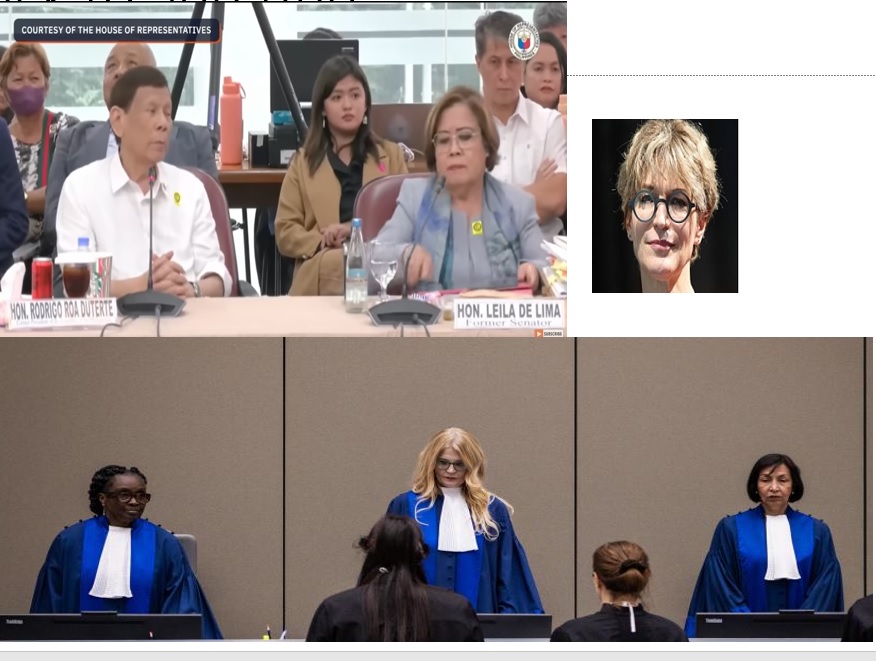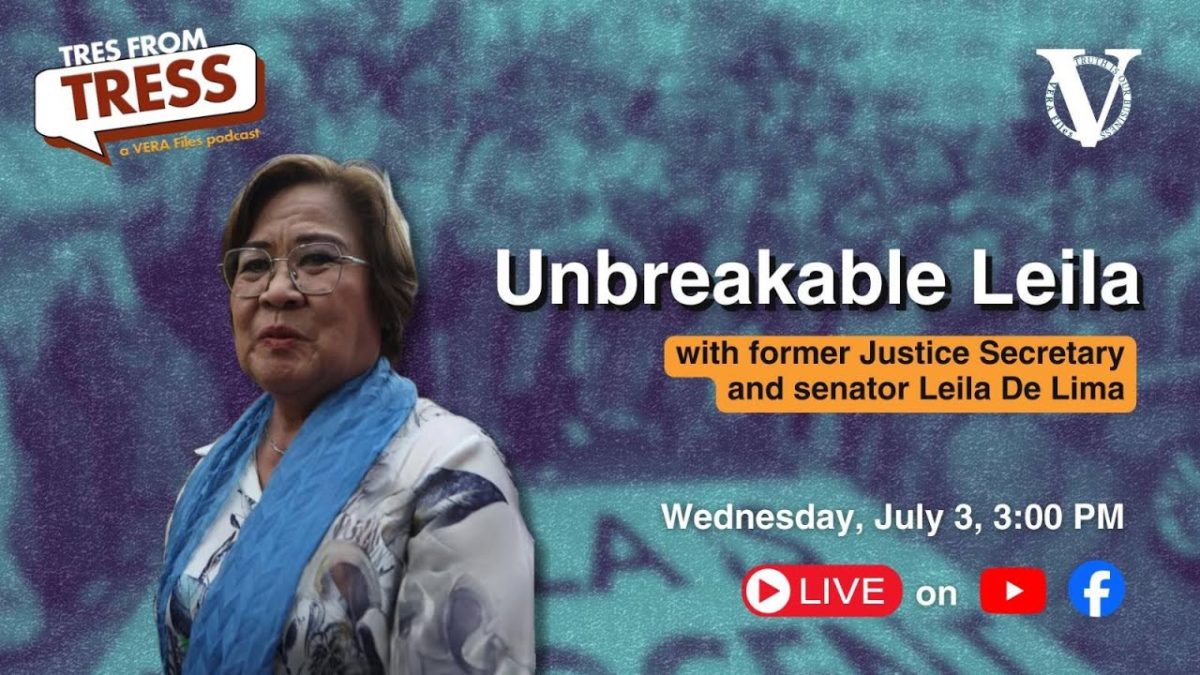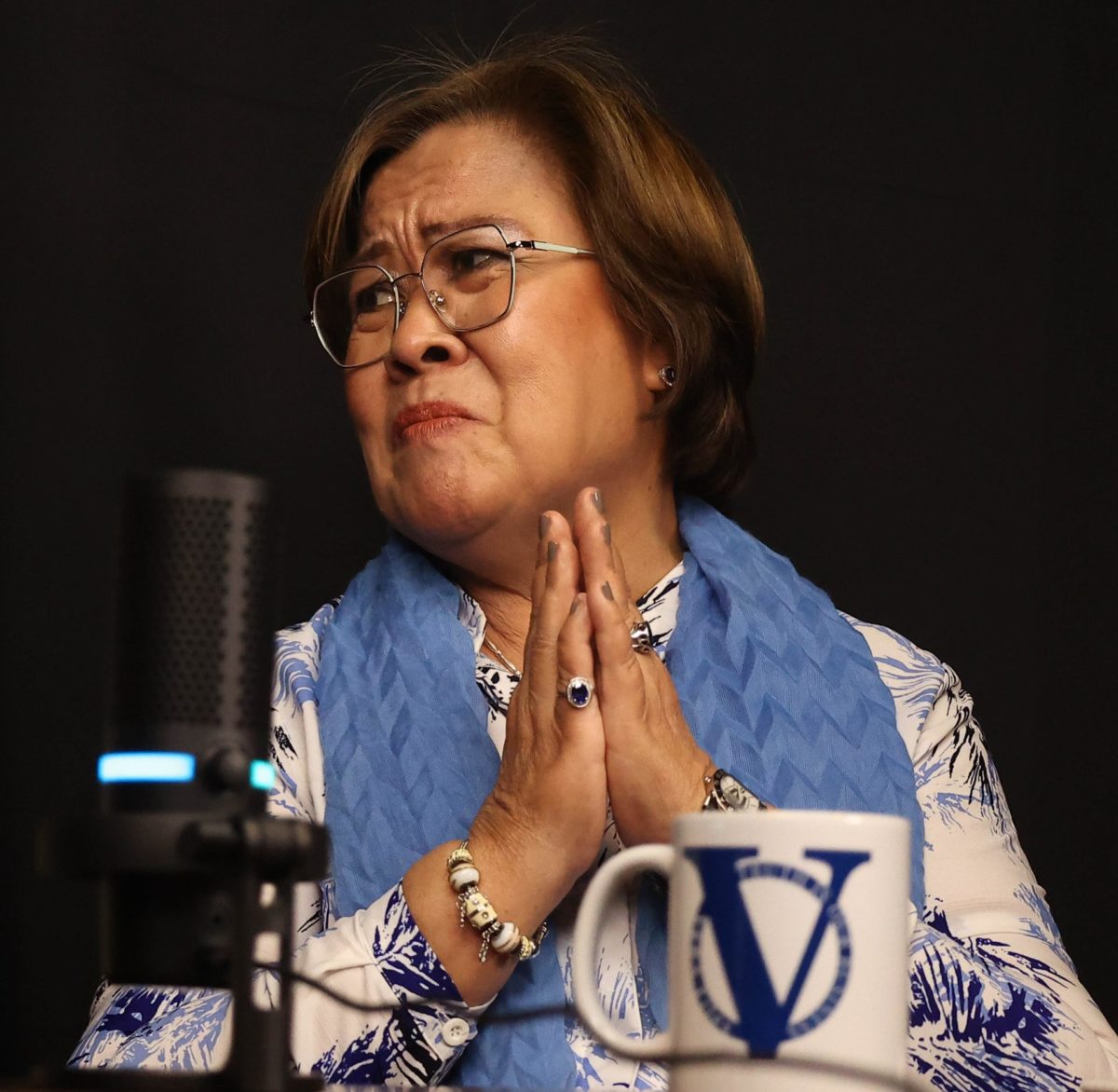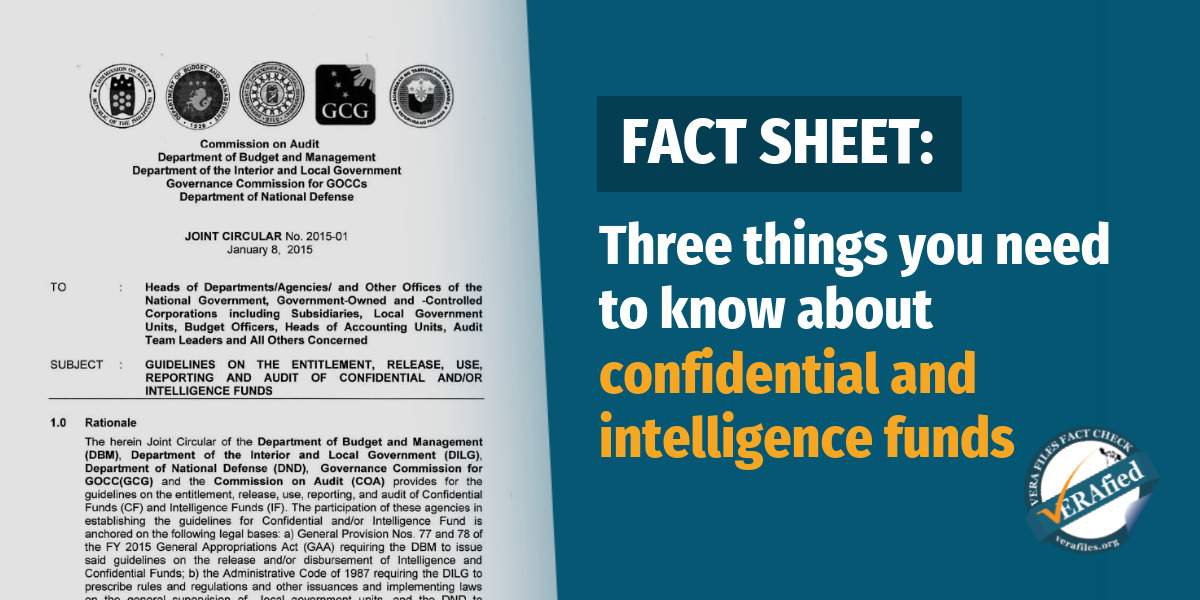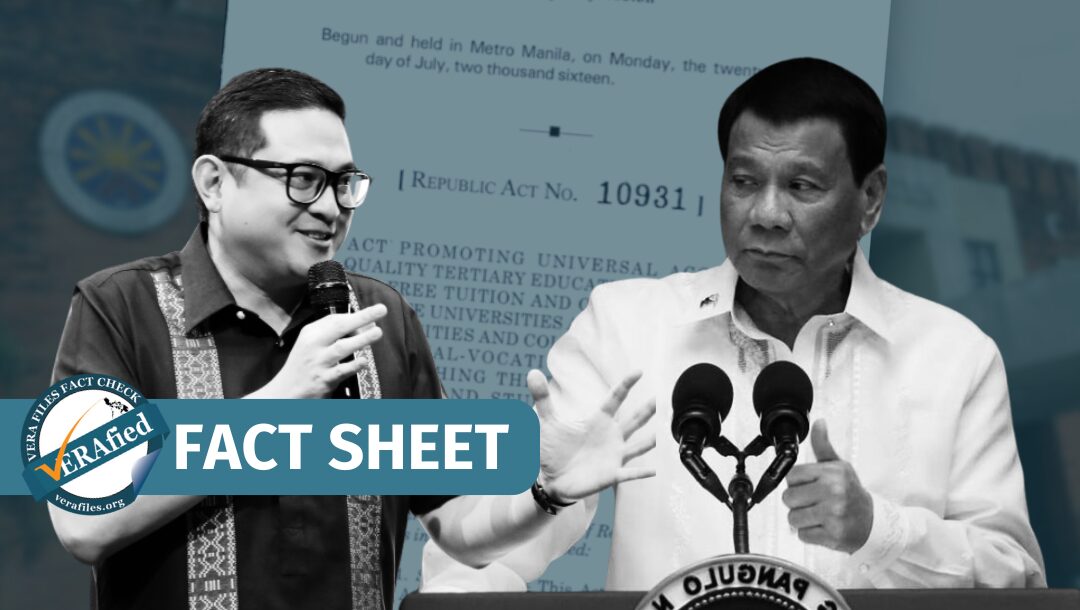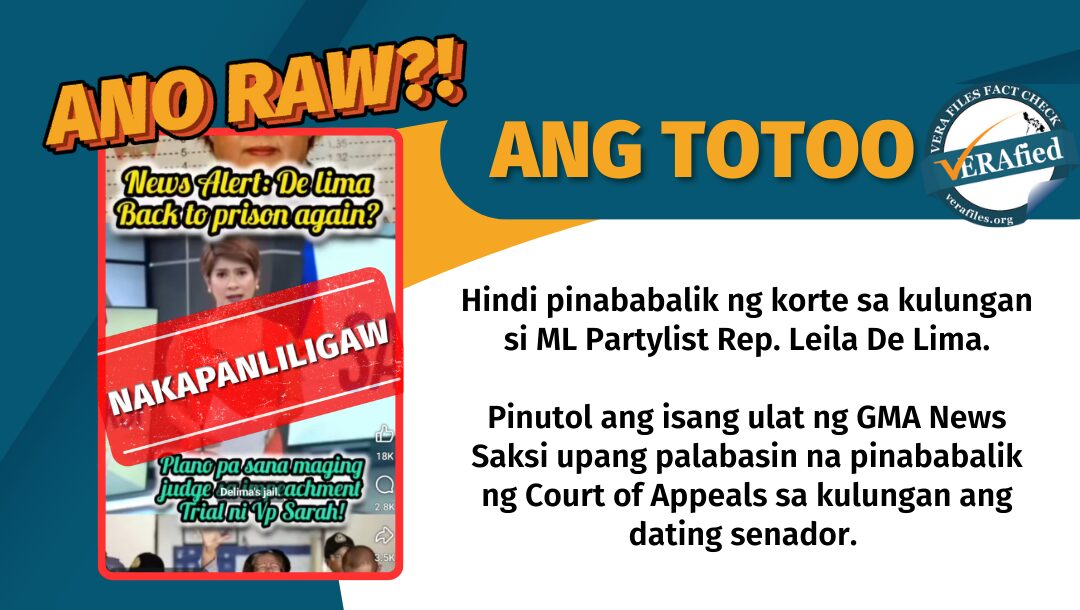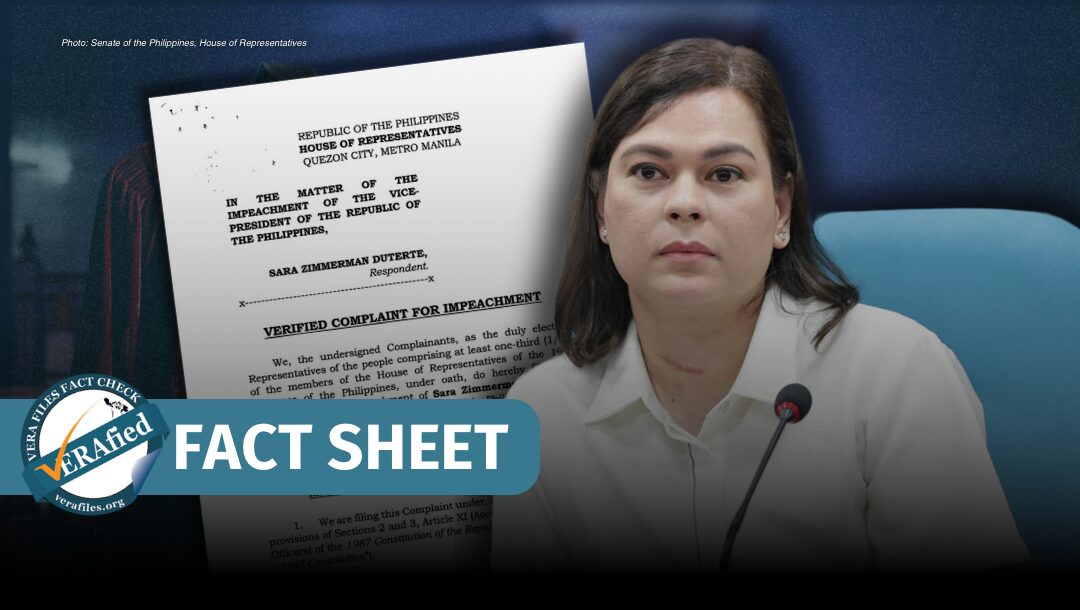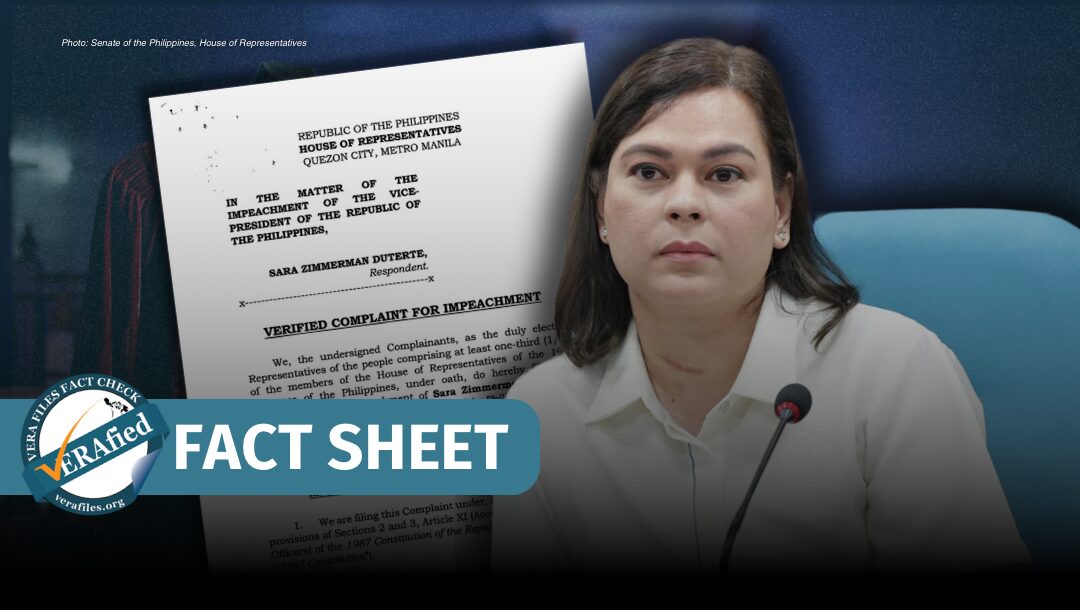News headlines on May 15 used the words nullified, voided, reversed, overturned and remanded to refer to an April 30 ruling of the Court of Appeals (CA) granting a petition for certiorari on a drug case in which former senator Leila De Lima had been acquitted.
Readers got the impression that De Lima, who is slated to make a return to the legislature as a party-list representative, would be sent back to jail.
That is not the case, Department of Justice (DoJ) spokesperson Mico Clavano clarified the next day, saying the appellate court simply remanded the case to the Muntinlupa regional trial court to make clear its decision on De Lima’s acquittal.
Seasoned lawyers also found the CA ruling perplexing.
What exactly is the CA ruling about? How will it affect De Lima’s seat in the House of Representatives? VERA Files explains:
What is the CA ruling about?
The CA ruling involves one of three drug cases filed in 2017 by the DoJ against De Lima. It granted a petition for certiorari filed by the Office of the Solicitor General under Menardo Guavarra and declared the May 12, 2023 and July 6, 2023 decisions of the Muntinlupa RTC acquitting De Lima “null and void.”
A petition for certiorari refers to an extraordinary legal remedy for a review of a decision of the lower court believed to have acted improperly, or with grave abuse of discretion.
In the April 30 ruling, which was publicized only on May 15, the CA eighth division led by Associate Justice Eleuterio Bathan, remanded the case to the RTC “for it to decide the case in accordance with the rules stated in this decision.”
In simple terms, the CA wanted the RTC to substantiate its 2023 rulings to justify De Lima’s acquittal.
The Muntinlupa RTC acquitted De Lima in 2023, after the key witness, former Bureau of Corrections chief Rafael Ragos, retracted his earlier statements accusing the then senator of extorting from National Bilibid Prison inmates to fund her 2016 senatorial bid. In his affidavit, Ragos said former justice secretary Vitaliano Aguirre had coerced him into testifying against De Lima. The court said that absent Ragos’ testimony, there was reasonable doubt and the case could not stand.
However, the CA said the decision by Branch 204 Judge Joseph Abraham Alcantara did not specify which parts of Ragos’ testimony were retracted, how those retractions affected the overall case and which elements of the crime the prosecution has failed to prove.
The CA decision neither found De Lima guilty nor did it overturn her acquittal.
When the DoJ under Aguirre filed the drug cases, De Lima was an incumbent senator who initiated an investigation of the Davao Death Squad and the extrajudicial killings under the Duterte administration’s bloody war against illegal drugs.
What do lawyers have to say on the ruling?
Seasoned lawyers criticized the CA ruling for violating constitutional protections against double jeopardy, where an accused cannot be tried for the same offense they had already been penalized or acquitted for.
“A judgment of acquittal should not even be subject to appeal on the basis of an allegation that the trial court did not fully or satisfactorily explain its decision,” said former solicitor general Florin Hilbay in a May 15 Facebook post.
Retired Supreme Court associate justice Adolfo Azcuna said the CA decision is “fundamentally wrong” and should be reversed by the Supreme Court (SC).
“[The CA decision put] the onus on the defense to prove reasonable doubt when it should be the prosecution that must show absence of reasonable doubt,” he wrote in a May 16 Facebook post.
Mel Sta. Maria, former law school dean of the Far Eastern University, also criticized the ruling for incorrectly applying “grave abuse of discretion.”
“[To use] ‘grave abuse of discretion’ to evade the prohibition on double jeopardy, it must be shown that the proceedings were, in the words of the SC, a ‘sham’,” said Sta. Maria.
He was referring to a 1986 decision where the SC ordered a re-investigation of the 1983 assassination of former senator Benigno Aquino Jr., because Malacañang had pressured Sandiganbayan justices to acquit accused gunman Rolando Galman.
“In the De Lima case, the proceedings were not a sham. Ang tagal nga nakakulong si De Lima (De Lima was even jailed for a long time),” Sta. Maria pointed out.
Despite the criticisms against the ruling, legal experts clarified that the CA decision will not result in De Lima being jailed or retried.
Domingo Cayosa, former president of the Integrated Bar of the Philippines, said that the RTC may only need to submit a new decision to fill the gaps pointed out by the CA.
“Kinakailangan lang i-point out ng huwes anong… partikular na porsyon ng pagbawi [ni Ragos ng kanyang affidavit] ang related doon at anong partikular na elemento ng krimen ang hindi na-prove beyond reasonable doubt dahil dito,” Cayosa said in the May 16 episode of One News’ Afternoon Delight.
(The judge just needs to point out which particular portion of Ragos’ recantation is related to the decision and which particular element of the crime was not proven beyond reasonable doubt because of this.)
De Lima’s legal counsel, Dino De Leon, said that the acquittal was not reversed and the CA decision is not yet final.
“We believe that the Court of Appeals committed a reversible error. Hence, we will file a motion for reconsideration,” De Leon said in a May 15 statement.
In a statement on Thursday, De Lima said the CA ruling was unnecessary. “I just want to clarify that the CA did not say that my acquittal was reversed, as it only wanted the writing of the decision to be fixed — which to our belief is that there is no need to do so because the RTC’s decision is clear,” she explained.
“We think this is just an issue of the CA asking for an explanation and clarification in the decision, regarding the questions pointed out by the appellate court,” she added.
Does the CA ruling affect De Lima’s assumption of a party-list seat in the House of Representatives?
De Lima is assured of a seat in the House of Representatives as the first nominee of Mamamayang Liberal Party-list, which is ranked 14th in the final party-list tally for the 2025 midterm elections.
In fact, House Speaker Martin Romualdez already asked her on May 14 to join the 11-man House prosecution panel in the impeachment trial of Vice President Sara Duterte.
Election lawyer Romulo Macalintal said that the CA ruling should not affect De Lima’s upcoming term or her involvement in the Senate impeachment trial.
The Commission on Elections can only suspend proclamation for candidates facing disqualification cases or election offenses.
“Wala naman kinalaman [‘yung kaso] (The case has no bearing) and she can continue performing the function of party-list representative,” he shared in a May 15 Teleradyo Serbisyo interview.
Review: How did De Lima’s case unfold?
De Lima was arrested on Feb. 24, 2017 and detained at the Philippine National Police Custodial Center for almost seven years. She was allowed to post a P300,000 bail on Nov. 13, 2023 on her remaining drug case, which was eventually dismissed in June 2024.
De Lima had been investigating Duterte for drug-related killings since 2009, when she chaired the Commission on Human Rights and he was Davao City mayor.
When she was secretary of justice in 2014, De Lima led a series of raids in the New Bilibid Prisons, targeting convicted drug lords allegedly operating inside the national penitentiary.
She continued the inquiry on the DDS and the drug-related killings under Duterte as Davao City mayor and the country’s president when she was elected senator in 2016.
However, the probe was short-lived because she was ousted as chair of the Committee on Human Rights, and later on arrested and jailed.
The House of Representatives investigated her alleged involvement in the illegal drug trade inside the NBP. Some of the big-time drug lords, whose lavish lifestyles were exposed during the raids in 2014, testified against her.
On Feb. 17, 2017, the Department of Justice filed three illegal drug charges against De Lima. The criminal charges and the corresponding Muntinlupa City RTC branches that handled them were:
- CCN 17-165, RTC Branch 204: Accused De Lima, former aide Ronnie Dayan and former Bureau of Corrections chief Rafael Ragos of illegal drug trade and extortion in New Bilibid Prison (NBP) to fund her 2016 senatorial bid
- CCN 17-166, RTC Branch 205: Accused De Lima and her nephew Jose Adrian Dera of extorting money from high profile detainee Peter Co.
- CCN 17-167, RTC Branch 256: Accused De Lima of “tolerating the widespread drug trade” in NBP and soliciting PhP 70 million from inmates for her campaign.
De Lima was acquitted of all three charges. CCN 17-165 was absolved after Ragos retracted his testimony, while the other two cases were dismissed due to insufficient evidence.
On Feb. 17, 2021, RTC Branch 205 granted the demurrer—a legal objection against the sufficiency or integrity of evidence presented—submitted by De Lima’s team for CCN 17-166, resulting in an acquittal of the charge.
In 2022, three witnesses retracted their statements against De Lima in the span of two weeks.
On April 28, 2022, self-confessed NBP drug lord Rolan “Kerwin” Espinosa recanted his testimony, saying he was threatened to testify against De Lima. Ragos also retracted his testimony on April 30, claiming that former Justice secretary Vitaliano Aguirre II forced him to lie.
On May 13, 2022, Dayan recanted his 2016 allegations that drug money was delivered to De Lima’s residence and said he was forced to lie for fear of his life.
On May 12, 2023, RTC Branch 204 acquitted De Lima on CCN 17-165. In its decision, the court said that the recantation of Ragos’ testimony cast reasonable doubt over De Lima’s supposed involvement in the illegal drug trade inside NBP.
On Nov. 13, 2023, De Lima was granted bail on CCN 17-167 and finally walked free after her team posted bail of P 300,000. The case was re-raffled to RTC Branch 206 on July 12, 2023 after the presiding judge asked to inhibit himself from the case.
RTC Branch 206 granted De Lima’s demurrer for CCN 17-167 and ruled an acquittal on June 24, 2024, clearing the third and final charge against her.
After her acquittal in 2023, the OSG filed a motion for reconsideration on July 6, 2023, which was denied for lack of merit.
The OSG then filed the petition for certiorari before the CA, claiming that Alcantara acted with grave abuse of discretion on the following grounds:
- Rendering the decision without clear and distinct reference to the evidence and law upon which it is based;
- Unjustly disregarding the testimonies of other witnesses;
- Failing to test the credibility of Ragos’ recantation.
According to the Cornell Law School Legal Information Institute, a certiorari is “a writ by which a higher court reviews the decision of a lower court.”
On April 30, 2025, the CA granted the certiorari and the case was remanded to RTC Branch 204 to address the deficiencies.
“The Supreme Court consistently ruled that when grave abuse of discretion taints a judgment, it becomes wholly void. It is settled that a void judgment of acquittal has no legal effect and does not terminate the case,” a part of the CA decision read.


